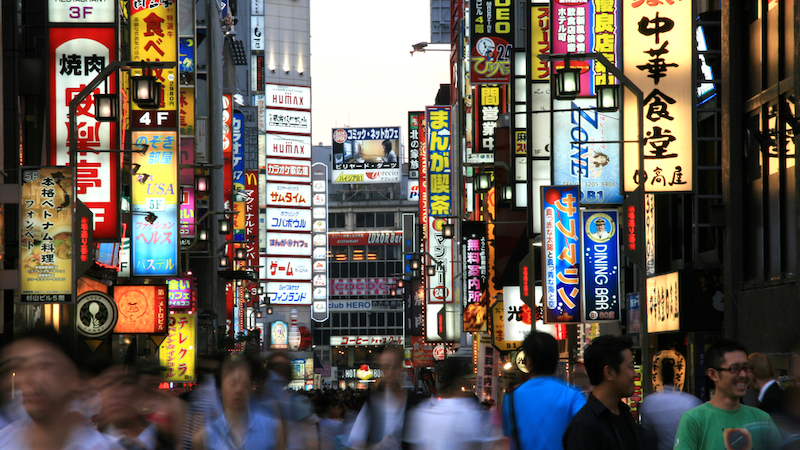Prime minister Yoshihide Suga is expected to unveil plans to achieve carbon neutrality in a speech on Monday, following growing pressure on Tokyo to step up ambition

Shinjuku, Tokyo, Japan (Photo: DepositPhotos)
Japan’s prime minister Yoshihide Suga is due to outline plans to achieve carbon neutrality by 2050 on Monday, setting a date for the coal-dependent country to end its contribution to climate change.
Suga is expected to lay out his policy priorities in first address to lawmakers since taking office last month in a speech to the Diet, Japan’s parliament.
He is expected to announce plans to cut all greenhouse gas emissions to net zero by 2050 and present measures to boost the deployment of renewable energy, according to Japanese newspaper Nikkei, which broke the story on Wednesday.
A carbon removal package is anticipated, which could include support for carbon capture and storage, and green hydrogen.
“This is very important and great news,” Takeshi Kuramochi, climate policy researcher at NewClimate Institute, told Climate Home News.
“It’s a significant step forward… that could create a step change in domestic policy decisions and among businesses and financial institutions,” agreed Kimiko Hirata, international director of the Kiko network, a Japanese environmental NGO.
Poland’s largest utility announces pivot from coal to renewables
Japan’s previous long-term climate strategy was to cut emissions by 80% by 2050 from 2010 levels and achieve carbon neutrality “at the earliest possible time in the latter half of this century”.
Last year’s climate strategy heavily relied on technological solutions to curb emissions and provided little detail on addressing Japan’s coal dependency, with the government committing to use carbon capture and storage in coal-fired power generation by 2030.
After president Xi Jinping’s surprise announcement last month that China will aim for carbon neutrality by 2060 and South Korea’s similar plans earlier this year, Japan was under pressure to clarify its long term ambition.
A flurry of commitments from Asian investors and development banks to strengthen their climate plans and end coal financing added to the momentum behind a 2050 net zero target, which in recent years has become the benchmark for climate ambition.
The 2050 goal will inform a revision of Japan’s 2030 energy plan, due to be presented by mid-2021. Under the current plan, renewables are expected to provide 22-24% of power generation, nuclear around 22-20% with coal, oil and gas still accounting for 56% of the energy mix.
Japan sticks to 2030 climate goals, accused of a ‘disappointing’ lack of ambition
“It will be easier for us to push for coal phase-out and renewable deployment” under the new long-term strategy, said Hirata. “If Japan does not have a coal phase-out date then it’s not going to be possible to meet net zero by 2050. The government needs to face that reality.”
“The coal-phase out certainly needs to much earlier than what the government has been discussing,” Kuramochi agreed, citing recent plans for closing inefficient coal plants to help the country meet its 2030 target of reducing coal’s share in the power generation mix to 26%.
To meet net zero emissions by 2050, the government will have to reduce coal’s share “well beyond” the 26% target and address emissions in the industrial sector as a whole, he added.
Earlier this year Keidanren, Japan’s largest business association and lobby group whose members include carbon-intensive sectors such as steel and automotive production, has been encouraging its members to develop innovative technology to help Japan achieve carbon neutrality.
But for all its talk of technological innovation, the industrial sector has been “lagging behind” the country’s decarbonisation efforts, Kuramochi said.
Plans to bolster research and development are falling short of the scale needed to achieve carbon neutrality, he added, warning there had “hardly been any discussion on decarbonising steel” for example.


